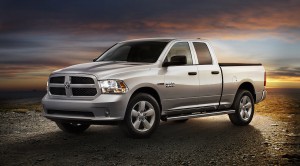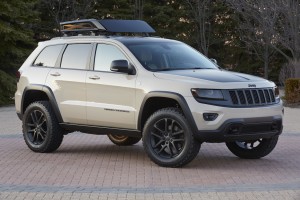Barely 24 hours after the U.S. Justice Department announced a $4.3 billion settlement with Volkswagen AG in connection with the German maker’s diesel emissions scandal, the Environmental Protection Agency accused Fiat Chrysler Automobiles of rigging its own diesel engines to illegally pass emissions test.
The agency said the so-called defeat device technology “appeared to cause the vehicles to perform differently when being tested” than when in use in real-world conditions. That was the same thing the EPA, in September 2014, charged that Volkswagen had done. Since then, VW has paid out close to $25 billion in fines and penalties related to the scandal. And FCA stockholders, apparently fearing a similar financial hit, sent the maker’s stock tumbling in the wake of the latest revelation.
“This is a clear and serious violation of the Clean Air Act,” said Cynthia Giles, assistant administrator for the EPA’s Office of Enforcement and Compliance Assurance. “The undisclosed software results in increased emissions of nitrogen oxides from the vehicles, threatening public health by polluting the air that we breathe.”
(VW agrees to $4.3 bil criminal settlement; six indicted. Click Here for more.)
Giles said the EPA discovered eight unexpected emissions control devices in use on 2014 through 2016 FCA models using a 3.0-liter turbodiesel engine. These include the Ram 1500 pickup, as well as the Jeep Grand Cherokee. Like VW, the Euro-American automaker has claimed that its diesel technology is both clean and fuel-efficient while also delivering significant levels of horsepower and torque.
For its part, the automaker said it “is disappointed” in the government’s allegations, insisting those vehicles use “state-of-the-art emission control system hardware.” As a result, “FCA US believes that its emission control systems meet the applicable requirements.”
The EPA initially charged Volkswagen with rigging a 2.0-liter turbodiesel used on models such as the VW Passat TDI. It later said the maker had rigged a 3.0-liter diesel, as well. VW subsequently acknowledged that subterfuge. The revelations led regulators and clean air activists to start questioning – and testing – whether other manufacturers have also rigged their diesels – engines innately prone to produce high levels of smog-causing oxides of nitrogen and particulates.
FCA has already been hit with three civil lawsuits alleging it rigged its diesel engines, the latest one filed in U.S. District Court in Detroit late last month. Diesel engine manufacturer Cummins Inc. was also named a defendant in one of the lawsuits which expands the list of models allegedly rigged to include 450,000 heavy-duty Dodge and Ram pickups using a 6.7-liter engine sold from the 2007 to 2012 model-years/
Earlier this week, however, the automaker’s CEO Sergio Marchionne insisted Jeep and Ram diesel engines comply with federal emissions rules, telling journalists at the North American International Auto Show in Detroit, “We wouldn’t have sold them otherwise.”
Among the eight emissions control systems the EPA said FCA is using illegally, “Some of the devices appeared to cause the vehicles to perform differently when being tested than in normal operations and use,” according to the agency’s Assistant Administrator Giles.
In Volkswagen’s diesel engines, sensors looked for telltale signs that the vehicles were being run on a dynamometer, especially an automotive treadmill, such as the fact that there was no steering input despite operating at highway speeds. Under such situations, the engine’s control system was able to reduce the level pollutants enough to meet EPA guidelines. Under normal use, the engines would produce up to 40 times the allowable level of emissions.
“This deceit is as dangerous as the sickening smog these vehicles leave behind. Consumers deserve corporate accountability and clean cars that don’t make our families sick,” said Michael Brune, the Executive Director of the Sierra Club. “No profit margin is worth poisoning our neighborhoods with toxic smog.”
(VW gets go-ahead to repair 60,000 late-model diesels. Click Here for the story.)
If the VW case is any example, the Justice Department and other federal agencies could step into the Fiat Chrysler case, along with California’s powerful Air Resources Board.
VW agreed to a $14.7 billion settlement covering the 2.0-liter diesel in June. That included $10 billion to buy back most of the 475,000 vehicles using the engine. A second settlement was recently announced covering the 3.0-liter engine, while VW has also agreed to pay more than $1 billion to U.S. dealers. The latest, $4.3 billion settlement resolves a criminal investigation. Six VW executives were also indicted this week.
It remains to be seen if the government will take similar, criminal actions against Fiat Chrysler.
What is also uncertain is how the incoming Trump Administration will handle the case, which is being opened in the final days of the Obama White House. The president-elect has expressed skepticism about matter such as global warming, while also calling for Washington to scale back regulations.
“FCA US intends to work with the incoming administration to present its case and resolve this matter fairly and equitably and to assure the EPA and FCA US customers that the company’s diesel-powered vehicles meet all applicable regulatory requirements,” the carmaker said in a statement.
FCA is just the latest in a series of automakers to be accused of cheating, both in the U.S. and abroad. Some, such as VW, have been linked to rigged emissions tests. Mitsubishi and Suzuki were caught rigging Japanese mileage tests, while Ford and Hyundai/Kia have been punished for providing inaccurate U.S. mileage numbers.
All have suffered financially. And FCA could face a similar hit. It has already been hammered in the stock market where its shares initial fell by nearly 15%. In mid-afternoon Thursday trading its shares recovered slightly but were still off more than 8%, to just over $10.
(Scrubbing NAFTA could cost 31,000 U.S. automotive jobs. Click Here for the full story.)




I’d be in no hurry to have computers re-calibrated. I had a 2004 Ford Super Duty Powerstroke re-calibrated for Particulate emissions. My mileage went from 18.8 mpg to 15.1 and it never went back up.